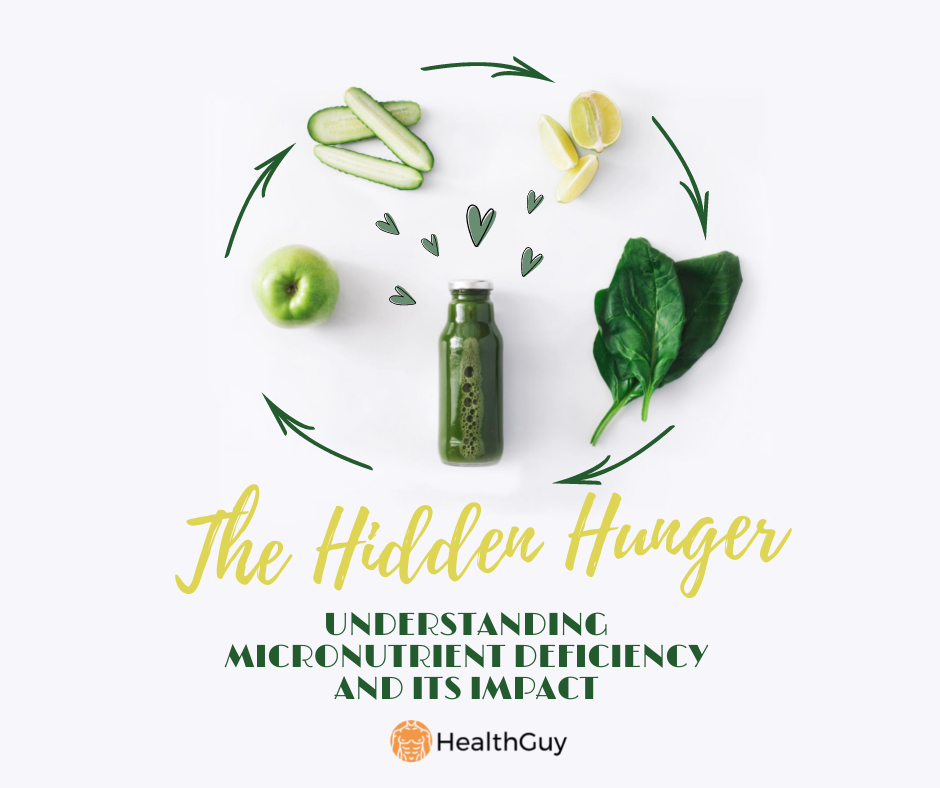
The Hidden Hunger: Understanding Micronutrient Deficiency and Its Impact
Micronutrients are essential vitamins and minerals that our bodies require in small amounts to function properly. They play a crucial role in maintaining our overall health and well-being. However, many people around the world suffer from micronutrient deficiencies, which can have serious consequences for their health. In this article, we will discuss what micronutrient deficiency is, its causes, and its effects on the body.
Micronutrient Deficiency
Micronutrient deficiency, also known as “hidden hunger,” occurs when our bodies do not receive enough essential vitamins and minerals that are required for proper functioning. This deficiency can occur due to a lack of access to a balanced diet, poor food choices, or underlying health conditions that can affect the absorption or use of these nutrients.
Common Micronutrient Deficiencies
The most common micronutrient deficiencies include iron, vitamin A, iodine, and zinc. Iron deficiency can cause anaemia, which results in fatigue, weakness, and poor concentration. Vitamin A deficiency can cause night blindness, impaired immunity, and increased susceptibility to infections. Iodine deficiency can cause thyroid problems, leading to stunted growth and developmental delays in children. Zinc deficiency can cause weakened immunity, slow wound healing, and hair loss.
Here are some statistics on micronutrient deficiency:
- According to the World Health Organization (WHO), around 2 billion people worldwide suffer from micronutrient deficiencies.
- Iron deficiency is the most common micronutrient deficiency globally, affecting an estimated 1.62 billion people.
- Vitamin A deficiency affects around 250 million children worldwide, leading to an increased risk of blindness and infectious diseases.
- Iodine deficiency affects around 1.9 billion people worldwide, leading to mental impairment and stunted growth.
- Zinc deficiency affects around 17% of the global population, with the highest prevalence in sub-Saharan Africa and South Asia.
- In developing countries, over 40% of children under the age of 5 suffer from vitamin A and zinc deficiencies.
- Micronutrient deficiencies are also prevalent in developed countries. In the United States, for example, around 10% of the population is deficient in vitamin D, while around 20% of women of reproductive age are deficient in iron.
- These statistics highlight the widespread nature of micronutrient deficiency and its impact on global health. They underscore the need for improved access to a diverse and balanced diet, as well as targeted interventions to prevent and treat micronutrient deficiencies in high-risk populations.
Causes of Micronutrient Deficiency
Micronutrient deficiency can occur due to a variety of factors. One of the primary causes is a lack of access to a balanced diet. Many people around the world do not have access to fresh fruits and vegetables, whole grains, and lean protein sources, which can lead to a lack of essential vitamins and minerals in their diet.
In some cases, even when people have access to a balanced diet, they may not consume enough of these essential nutrients. This can happen due to a lack of education about the importance of a balanced diet, cultural and traditional food practices, or the limited availability of certain foods.
Certain health conditions can also contribute to micronutrient deficiencies. For example, individuals with digestive disorders or malabsorption problems may not be able to absorb nutrients from food properly, leading to a deficiency. Similarly, chronic illnesses such as cancer, HIV, and kidney disease can affect the absorption or use of micronutrients.
Effects of Micronutrient Deficiency
Micronutrient deficiency can have several negative effects on the body. It can impair growth and development in children, increase the risk of infections, weaken immunity, cause anaemia, and affect cognitive function. In pregnant women, micronutrient deficiency can lead to low birth weight, premature birth, and other complications.
Prevention and Treatment of Micronutrient Deficiency
The best way to prevent micronutrient deficiency is to consume a balanced diet that includes a variety of fruits and vegetables, whole grains, lean protein sources, and dairy products. If you are unable to obtain all the essential nutrients from your diet, you may consider taking supplements under the guidance of a healthcare provider.
In some cases, treating an underlying health condition that affects the absorption or use of micronutrients may be necessary. For example, individuals with digestive disorders may need to take medication or make dietary changes to improve their nutrient absorption.
In conclusion, micronutrient deficiency can have serious consequences for our health and well-being. It is important to ensure that you consume a balanced diet that includes all the essential vitamins and minerals. If you are at risk of developing a deficiency, speak to a healthcare provider who can guide you on the best course of action to prevent and treat the deficiency.
